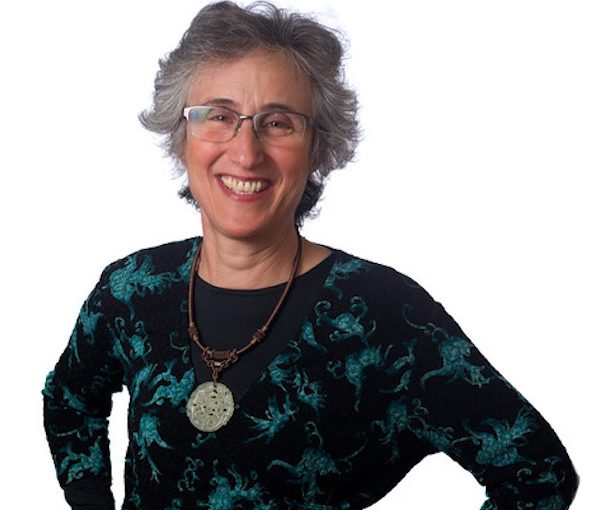It’s that time of year again. Which I face with trepidation on occasion, because my family celebrates Hanukkah – and that’s it. Some years, I manage to float by in a haze of patience, busy with my family’s celebrations and entertaining, oblivious to everything around me. Other years, I’ve had to interact with the majority culture around me in ways, big and small, that feel difficult. I could go into all the examples of what makes me feel uncomfortable, but that’s not really necessary. Why? Too many readers know what I mean, and those who don’t will suggest that I’m just being overly sensitive, whatever example I raise.
Hanukkah (however you spell it in English) is not a major Jewish holiday, though it has some themes that require adult maturity to unpack. It’s a story of guerilla warfare, a holiday of religious freedom, a tale about light and miracles, and of a small group of locals winning the fight against a big assimilationist majority. It’s not the easiest set of ideas to explain to kids, which is probably why we teach them the blessings and focus on dreidels, fried food, candles and presents.
Hanukkah shares a lot of ground with other winter solstice holidays, of course. It’s really dark at this time of year and all we want to do is bask in a little bit more light, eat lots of calories and find something to enjoy together indoors. Winnipeg, where I live, is a good place to remember this – with the change to standard time, the sun goes down very early, with just about eight hours of daylight.
After all this pondering, I kept coming back to what recipe I could find to make this year one of the “good ones,” where I don’t dwell too much on the frustrations of the season for minorities. It came to me, while driving back and forth to the elementary school. When my kids are on duty as safety patrols, they need to arrive early and leave later, so they can’t take the school bus. Even though they are learning to be responsible in Grade 6, the people who learn the most about responsibility in this scenario are parents. We drive them to school early and wait patiently in the car for 15 minutes after school is done so we can drive them home again.
A person (ahem, me) can get grouchy about this, especially because there’s a lot of traffic at this time of day. However, my special reminder happens when I cross a bridge, under which a river flows. We are lucky to be situated at the forks of two rivers in Winnipeg, so we cross bridges a lot. At a Jewish summer travel camp, long ago, my kids learned to recite a chant reminding us that the Ba’al Shem Tov says water is a siman brachah, a sign of blessing – a good sign.
The Ba’al Shem Tov was the founder of Chassidic Judaism, a teacher and a mystic and the stories of the Ba’al Shem Tov maintain resonance for us today. Remembering that water is a sign of blessing made me think about how very lucky my family and I are. We have clean water, unlike many Indigenous Canadians, and unlike many others in the world. In general, most of us in Canada have a place to live, heat and food. We are not suffering in winter as much of Ukraine is, without electricity or heat. While inflation is rising, we’re not faced with the staggering heat bills hitting the United Kingdom and Europe.
Once I remember to be grateful, I find myself pushing farther – to consciously force myself, when perhaps I am grouchy, hungry or cold, to be more patient and kind. For me, that crankiness is temporary. For people who are struggling, unhoused and don’t have enough to eat, it’s a much longer ordeal.
The Ba’al Shem Tov was a very good teacher and had patience and love for his students, who were small children. I’m also returning to the elementary school now, as I’ve started volunteering one afternoon a week. This, too, has been a gift. Helping kids in Grade 1 with the alef bet (Hebrew alphabet) is another wonderful opportunity to celebrate. If volunteering is giving, I receive the enthusiasm, affection and wonder that these eager learners share. It’s worth the traffic jam struggles of crossing the bridge repeatedly in traffic.
When Hanukkah arrives, we’ll have our night of tzedakah (charity) as well as our nights with sufganyiot (jelly doughnuts) and other small treats. We’ll light our candles and push away darkness as we can. However, the Ba’al Shem Tov’s reminder, that water is a blessing and a good sign, is a year-round gift, just as it is to work with kids. We can choose to use these teachings as a reminder to take that deep breath, find the bandwidth and be kind because we’re grateful and fortunate.
I can’t guarantee I’ll always be patient this time of year. I’m not always up for the parties that are for the “holidays,” but are called wassails, or the repeated Merry Christmas greetings. Luckily, I have lots of chances to look out at the water as I cross the bridge and to look at the joy of kids eager to learn, and to remember to be grateful for these blessings. Have a great Hanukkah!
Joanne Seiff has written regularly for CBC Manitoba and various Jewish publications. She is the author of three books, including From the Outside In: Jewish Post Columns 2015-2016, a collection of essays available for digital download or as a paperback from Amazon. Check her out on Instagram @yrnspinner or at joanneseiff.blogspot.com.

